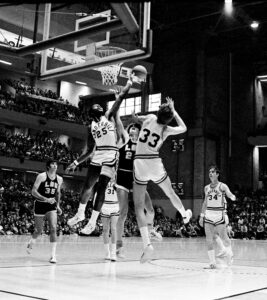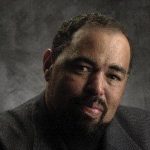Notice: Undefined offset: 1 in /var/www/wp-content/themes/jnews/class/ContentTag.php on line 86
Notice: Undefined offset: 1 in /var/www/wp-content/themes/jnews/class/ContentTag.php on line 86

By Rickey Hampton, Editor and Founder of The African-American Athlete,

You may have never heard of Perry Wallace. But without him, you may have never heard of Dominique Wilkins, Charles Barkley, Bo Jackson, or damn near any great black athlete to come out of the SEC.
In 1967, Wallace became the first African-American scholarship athlete to play in the Southeastern Conference, when he signed a scholarship to play basketball at Vanderbilt University in his hometown of Nashville, Tenn.
Wallace died Friday night following a lengthy illness in Rockville, Md. He was 69.
Wallace was a 6-foot-5, high-jumping forward, who then coach Roy Skinner recruited to Vanderbilt, out of all black Pearl High School, located just minutes away from the Vanderbilt campus in Nashville.
Although Pearl High was just a short, 10 minute drive from North Nashville, to the trendy, all white, well to do area of West End, where Vanderbilt is located, it was essentially a world away.
Nashville, just like the rest of the South, was in the midst of the civil rights movement. The movement had been hot and heavy. There were the sit-in movements at downtown restaurants, led by youth from four of the black colleges and universities. Wallace had spent the previous year on the Vanderbilt freshman team (NCAA rule prohibited freshman playing varsity at that time) along with another black player, Godfrey Dillard.
Dillard suffered a knee injury, and eventually left school, leaving Wallace as the lone black player on the VU roster, and in the SEC.
As you might imagine traveling in the South during that period was a challenge. Consider that in 1962 Ole Miss rioted at the thought of black students enrolling at their respective schools. In 1963 Mississippi State wouldn’t allow its teams to compete against a school with a black athlete. That was also the year Gov. George Wallace stood in front of the registrar’s office at the University of Alabama in order to block the enrollment of James Hood and Vivian Malone. In 1964 three civil rights workers _ Andrew Goodman, Michael Schwerner and James Chaney were murdered when their car was stopped while traveling in Mississippi.
What would it have been to pull the Vanderbilt bus over, drag Wallace off it, and kill him?
“We’re going to kill you, we’re going to castrate you, and we are going to lynch you.” Wallace was called ‘nigger’, ‘coon’ and ‘jigaboo’. During an interview with NPR to talk about his book, ‘Strong Inside: Perry Wallace and the Collision of Race and Sports in the South’, Wallace said he remembers what looked like an entire family screaming racial epithets at him.
“It is what looked like three generations of a family, and all of them were spitting, screaming, calling me names, and threatening me,” Wallace said. “This was just great sport for them.”
In the final game of Wallace’s college career (1970) he scored 28 points and had 27 rebounds. His final basket at Vanderbilt was a thunderous dunk, which was illegal at that point in college basketball.
“Yeah, that’s what I wanted,” said Wallace, of the dunk. “To make a statement.” And I had made a promise to my mother, and I kept it best that last game. So I scored — what was it? — 28 points and 27 rebounds. Nobody’s ever heard of that.
“And the pièce de la resistance was the dunk at the end. … The illegal dunk. And that basically said, well, these segregation laws were illegal laws. They were the law, but they weren’t just. And so this is what I think of all those unjust, illegal rules. There it is. Slam dunk.”
Wallace played a season in the National Basketball Association, before going on to attend law school. Wallace was an esteemed professor at American University’s Washington School of Law. Click here to listen to Wallace’s interview with NPR from 2014.


